Dysphagia: A difficult diagnosis to swallow!

Danielle Carey, Speech Pathologist at Alexandra District Health, is campaigning to promote Swallowing Awareness Day.
The average Australian swallows 500-700 times a day. That’s around three times an hour during sleep, once per minute while awake and even more during meals.
Most Australians are unaware how difficulty with swallowing can be frightening and life threatening. It’s why on Wednesday 17 March 2021, Danielle Carey is campaigning to promote Swallowing Awareness Day.
Swallowing Awareness Day 2021 is an opportunity to bring attention to swallowing disorders and to connect people with speech pathologists, the professionals who can help. Speech Pathologists assess and treat people with Dysphagia (difficulty swallowing) – pronounced ‘dis-fay-juh’.
The theme for Swallowing Awareness Day in 2021 is: ‘Dysphagia. A difficult diagnosis to swallow!’
Only last year, a woman tragically died after she choked during a lamington-eating competition in Queensland on Australia Day. It’s believed the 60-year-old suffered a seizure after choking on the Australian cake. This choking death highlights the danger of when people have swallowing difficulties.
Around 15‐30 per cent of people aged 65+ living in the community have a swallowing difficulty, with that figure rising to over 50 per cent for older Australians living in a nursing home. And after falls, choking is the second biggest killer of nursing home residents.
Danielle Carey said it is estimated around 1 million Australians have difficulty with swallowing. Swallowing disorders remain largely invisible, poorly understood by the general community, and rarely addressed in government policy.
Swallowing problems can mean food, drinks or saliva gets into the lungs (aspiration) and this can cause lung infections (pneumonia). Severe swallowing complications can lead to death, while other swallowing complications can lead to poor nutrition, dehydration, health complications, and social isolation.
The cost to affected individuals is measured in dollars through added health costs, limitations to their participation in the wider society, and in negative impacts on their social and emotional wellbeing. The cost to the wider community includes increased costs through longer hospital stay.
Australians with undiagnosed difficulties are frequently referred to other health practitioners — often for expensive and invasive investigations — when a speech pathologist could readily manage the problem.
Danielle Carey said “A swallowing problem can occur at any stage of life. Swallowing is a skill developed from infancy.”
“Babies born prematurely or children with abnormalities with the structure of their head, neck and face, such as cleft lip or palate can have difficulty feeding.”
“Almost half of everyone who has had a stroke will have a swallowing problem,” added Danielle Carey.
“Sixty-nine per cent of people with Parkinson’s disease will have swallowing difficulties, as will 25 per cent of patients with Multiple Sclerosis.”
“Swallowing Awareness Day is an opportunity for all of us to learn more about swallowing difficulties and how they impact on the lives of our friends, neighbours and our wider community.”
“As speech pathologists, we are the professionals who assess and manage dysphagia.”
If you are concerned about your swallowing, please contact our Intake Officer on 5772 0908 to arrange an appointment with a speech pathologist, or email ADHIntake@adh.org.au for more information.

